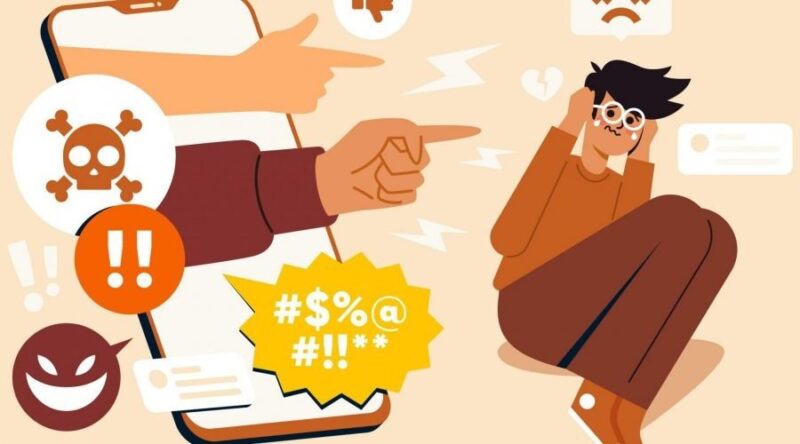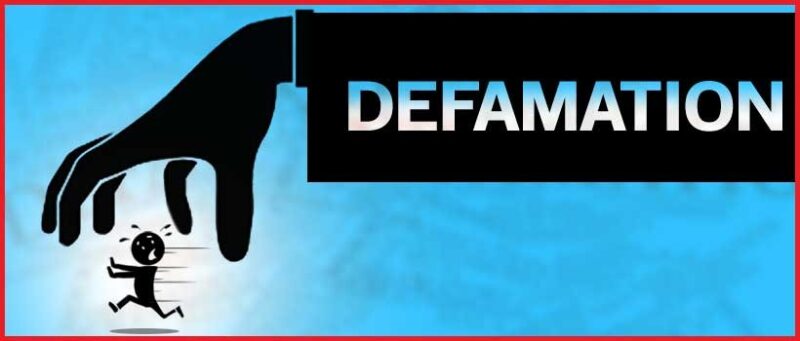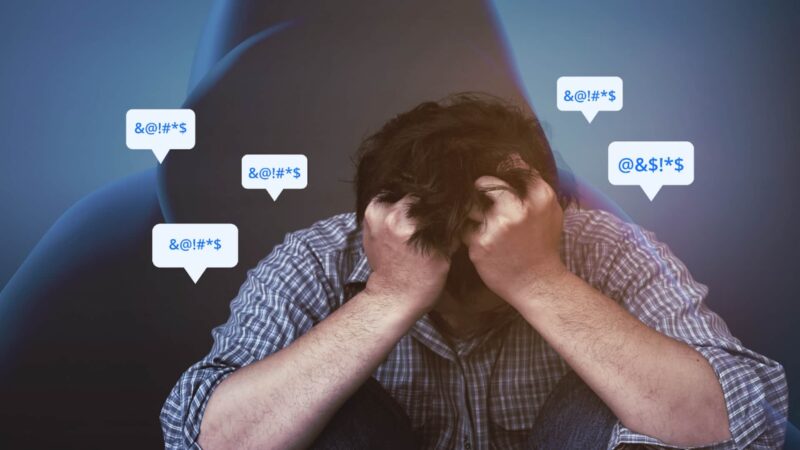When someone posts a false statement about you on social media, a blog, or any public online forum, one that damages your reputation, that’s the simple impulse behind online defamation. But in practice, it’s rarely so simple.
Because internet publishing is immediate, wide-reaching, and often irreversible, the harm can multiply before a victim even knows what’s happening.
To understand this fully, we must not only define how defamation has evolved in digital spaces, but also pause to consider what it feels like to be on the receiving end. The emotional, professional, and social consequences are often severe.
And yet, in many societies, laws, public awareness, or social norms have lagged behind. In this article I’ll explain how online defamation works, examine how victims are affected, and propose what must change so that a culture of accountability and respect can take root.
Understanding the mechanics of defamation in the digital world

At its core, defamation involves:
(1) a false statement presented as fact,
(2) communicated or published to a third party,
(3) causing harm to someone’s reputation,
(4) made with some degree of fault on the part of the speaker (negligence or knowledge of falsity).
Traditional legal systems have long distinguished between libel (written defamation) and slander (spoken). Online, though, almost every defamation is “libel” in the legal sense—because it is recorded, stored, and shared in text or media form.
What changes in the digital environment is speed, reach, and persistence. A false claim posted once might be reshared hundreds of times, picked up by aggregators or search engines, and remain archived even after attempts to delete it.
Retracting or correcting misinformation is much harder online than in print media; once the digital “echoes” exist, they often can’t be fully silenced.
Moreover, context matters. On social media, readers may misinterpret a statement as presented as fact though its author meant it as opinion, or vice versa.
Courts in some jurisdictions now wrestle with whether social-media posts deserve stronger protection because of their informal context—or, conversely, whether they should be held to stricter standards given their reach.
It’s in this space of uncertainty that many victims fall through the cracks—especially when existing laws, platforms, and social norms haven’t caught up.
How a single post can shatter a life (Victims’ real costs)
Let me take you behind the scenes. Imagine if someone you don’t know posts a false accusation about you—say, of theft, misconduct, or wrongdoing—on a public forum.
Within hours, it’s shared by acquaintances, strangers, or bots. The ripple reaches forums, comment sections, secondary websites. People searching your name see the smear long before any defense.
The impact is multidimensional:
- Emotional and psychological trauma: Victims often report anxiety, embarrassment, depression, loss of trust in people and institutions, sleepless nights, and in extreme cases, suicidal thoughts.
- Professional consequences: Employers, clients, or collaborators may see the false claim, question your integrity, or distance themselves—even before you have a chance to respond.
- Social damage: Personal relationships may suffer. Friends or family may be influenced by what they read online.
- Financial costs: Legal fees, reputation management services, lost income or business opportunities all follow.
- Long-lasting shadow: Even if you succeed in removing or litigating the false content, copies, screenshots, or cached archives may survive indefinitely.
A Pew Research survey in the U.S. found that 41% of Americans say they’ve personally experienced some form of online harassment.
And even that understates defamation-specific harm, because harassment covers insults, threats, doxxing, and other forms beyond direct false accusations. Moreover, when you compound misogyny, race, or power imbalances, some victims face especially intense defamation attacks.
Did you know?
| Statistic | Source / Context |
| 1 in 4 American women report online abuse | A survey found that 1 in 4 U.S. women have experienced some form of online abuse, including cyberbullying, trolling, or harassment. |
| ~4% of Americans have been doxxed | An estimated 11.7 million Americans, or ~4% of adults, have had their personal information maliciously exposed. |
These numbers remind us that while defamation is only one piece of the digital harm mosaic, its severity and potential for permanent damage are undeniably real.
Why many victims feel powerless—and how systems are failing

The experience of being defamed online can feel utterly isolating.
- First, anonymity and diffusion help wrongdoers hide. Many perpetrators operate under pseudonyms, or their posts are shared and reshared by others who may not even know the original source. Tracing them is often prohibitively expensive or legally complex.
- Second, legal systems across countries vary widely in how they treat defamation, especially online. In over 80% of nations, defamation is still criminalized—sometimes used not to protect reputations, but to stifle dissent. In many jurisdictions, defamation suits require proving serious harm or fault (which is particularly difficult in digital cases).
- Third, the digital platforms themselves often provide weak recourse. Content moderation is inconsistent, takedowns can be delayed or refused, and appeals are opaque. In a global survey, a large majority of people expressed support for removing harmful content like defamation, while still being wary of going too far with censorship.
- Fourth, victims often can’t afford to fight back. Pursuing legal or reputational remedies requires resources—lawyers, expert witnesses, time. Many just give up or try to “move on,” carrying the wound privately.
Thus, the feeling of powerlessness is not a personal failing, but a symptom of how institutions and culture are lagging.
What “should be done” — toward a more responsible digital world
We cannot allow freedoms—especially freedom of expression—to bleed into harm without boundaries. Yet we must also ensure we don’t stifle legitimate speech. The following are steps society must take:
- Strengthen laws to match digital reality.
Defamation statutes should require clarity in burden of proof, timeliness, and cross-border applicability. They must consider the peculiarities of internet publishing: speed, replication, jurisdiction stretching, and evolving technologies (e.g. deepfakes, bots). - Enforce timely and transparent platform accountability.
Social networks, forums, and hosting services must have clearer policies and processes for addressing defamatory content: more rapid takedown, transparent notice-and-appeal systems, and oversight. Moderation policies should be public, fair, and accessible. - Educate digital users about responsibility and media literacy.
Part of the problem is that many people share or comment without thinking about veracity or consequences. Schools, community organizations, and public campaigns must teach how to verify claims, resist rumor-spreading, and act responsibly when engaging with others online. - Offer affordable recourse for victims.
Legal aid, pro bono representation, and low-cost reputation repair services should be expanded. Victims should not have to abandon their lives or finances just to defend their name. - Support victims emotionally and socially.
Being defamed may feel like a personal collapse. Hotlines, counseling, peer groups, and harm-reduction networks are vital. Public awareness campaigns can reduce stigma and shame, making it easier for victims to speak up. - Promote restorative rather than purely punitive justice.
Where possible, encourage remedies that allow for correction, apology, mediation, and journalistic correction—not just punitive damages or bans. This approach helps rebuild trust rather than suppressing speech entirely.
By weaving together legal, technical, social, and emotional threads, we can begin to transform our digital culture so that dignity matters as much as discourse.
A deeper warning: when liberties go off course

We all cherish openness, free expression, and a marketplace of ideas. But the flip side of that freedom is that it can be weaponized.
The very liberties meant to empower us can, without guardrails, enable cruelty, misinformation, and ruin.
Online defamation sits at that tension. The same platforms that allow activism, dissent, and connection can also amplify lies, distort reputations, and silence truth.
We cannot naïvely assume technology is neutral. We must, as citizens, designers, policy-makers, and neighbors, build guardrails.
We should not punish honest mistakes or stifle unpopular views. But we must not allow falsehood and personal attacks to roam unchecked, either.
If we allow harm under the banner of free speech, we weaken the very foundations of justice and trust upon which a free society depends.
Conclusion: toward a digital ethic where dignity matters
When a lie about you circulates online, the hurt is real, the consequences tangible, and the recovery hard. Many defamation victims feel overlooked or powerless, not because of any personal weakness, but because the institutions around us haven’t caught up.
Yet change is possible. It begins with compassion for those harmed, humility about technology’s limits, and collective insistence that responsibility accompany freedom.
We must push for stronger laws, better platform policies, and a culture in which sharing a harmful falsehood is regarded as unacceptable, not as “just the cost of the Internet.”

